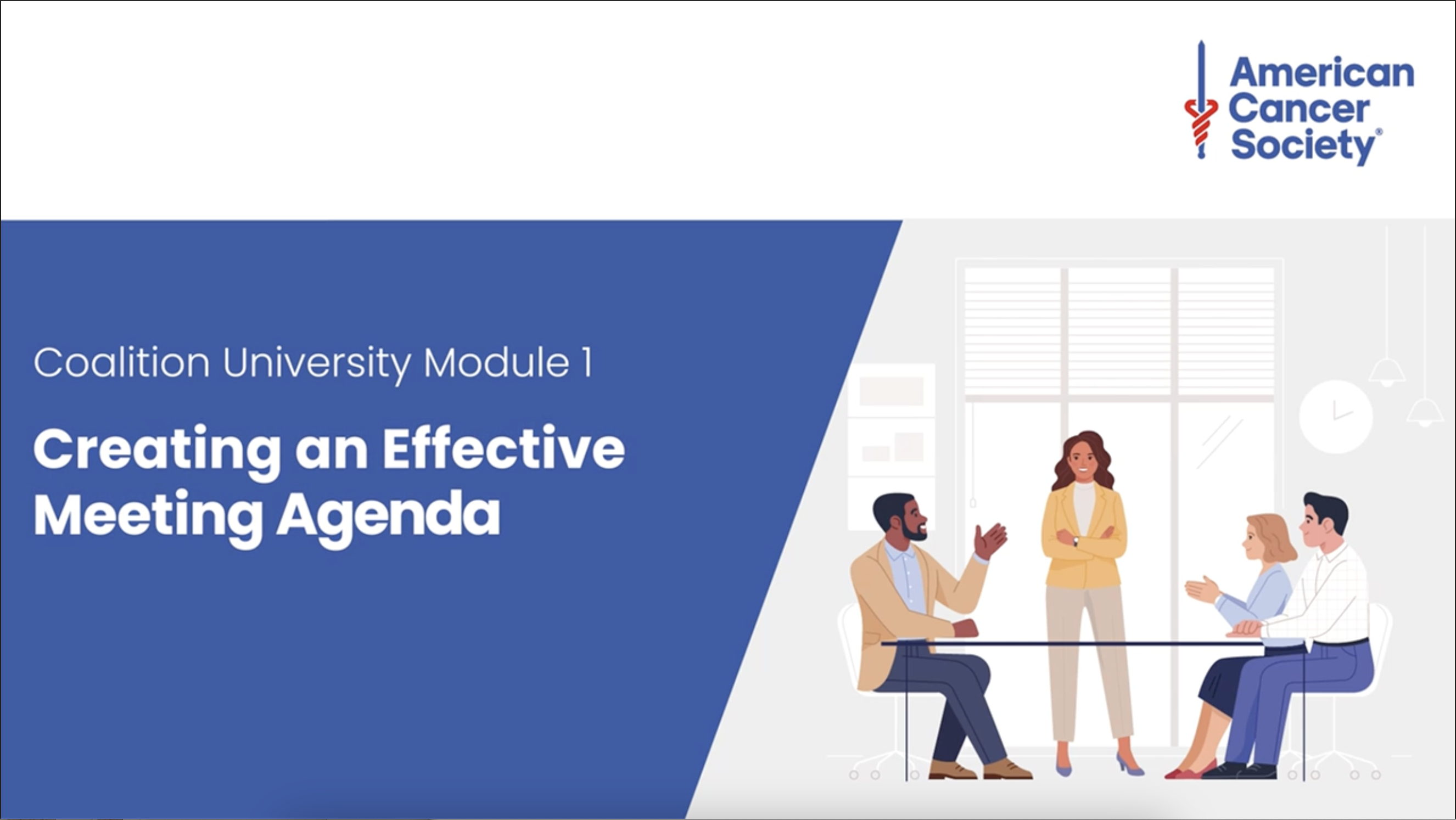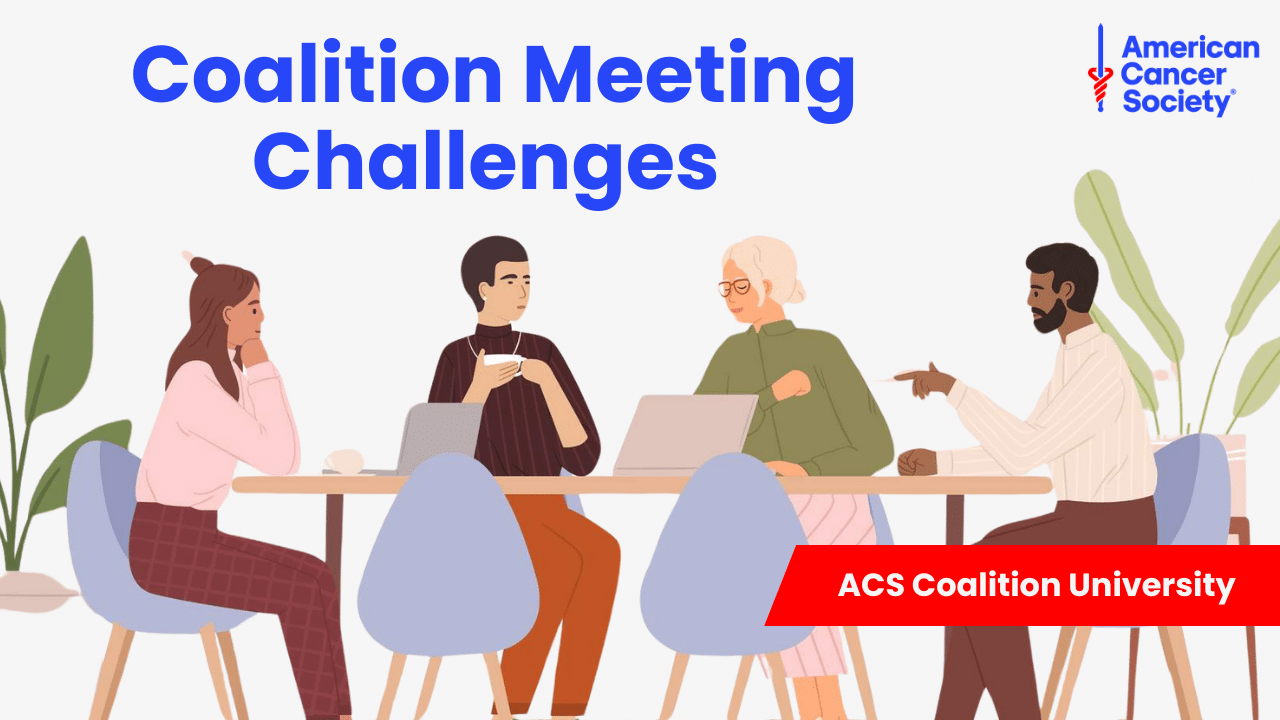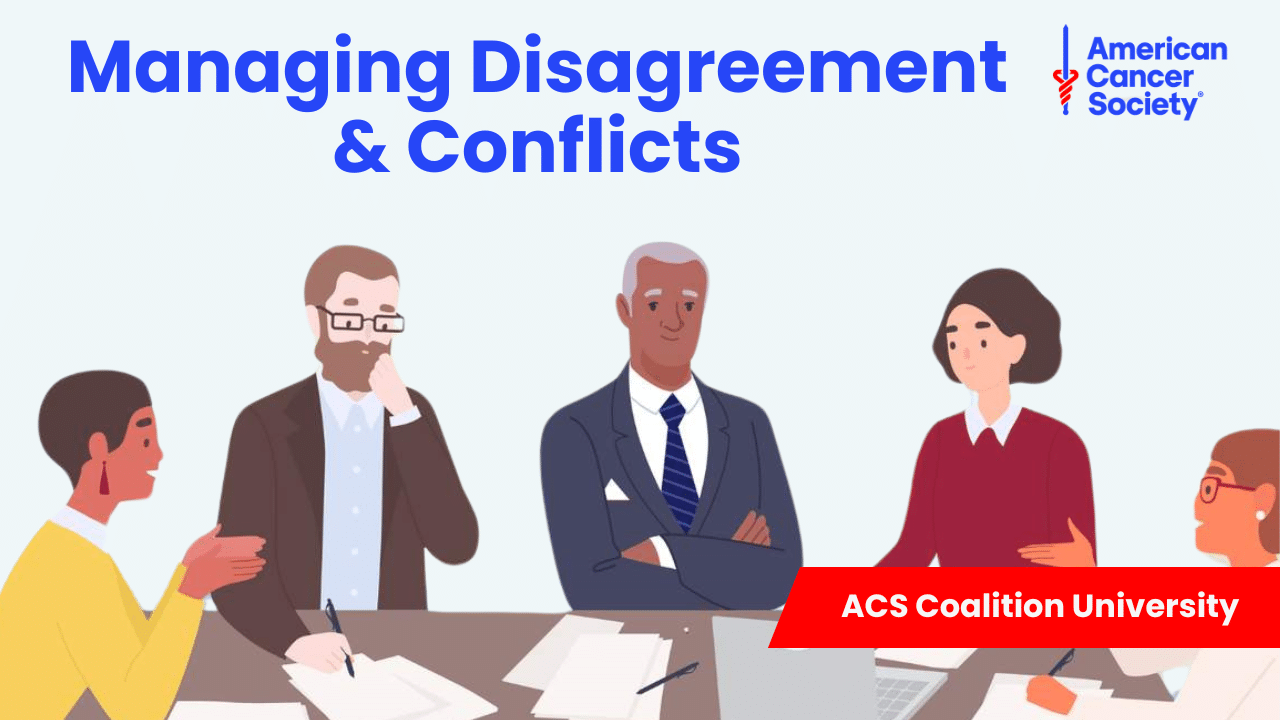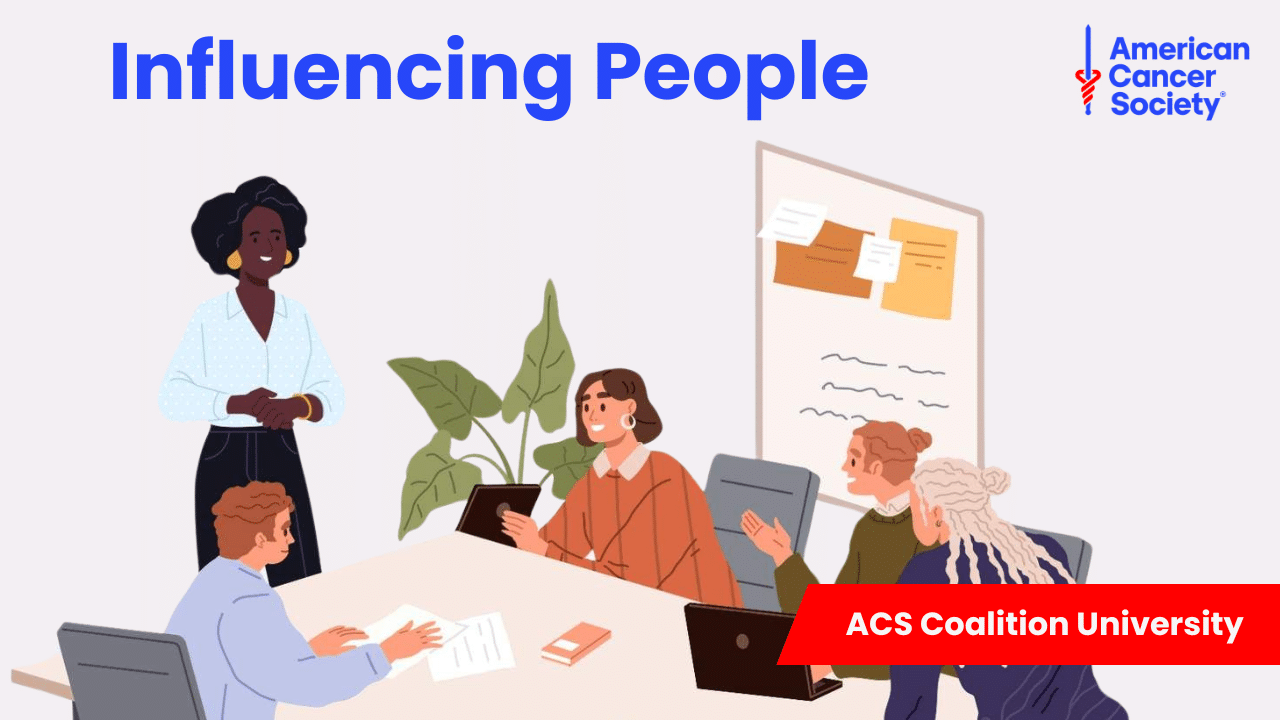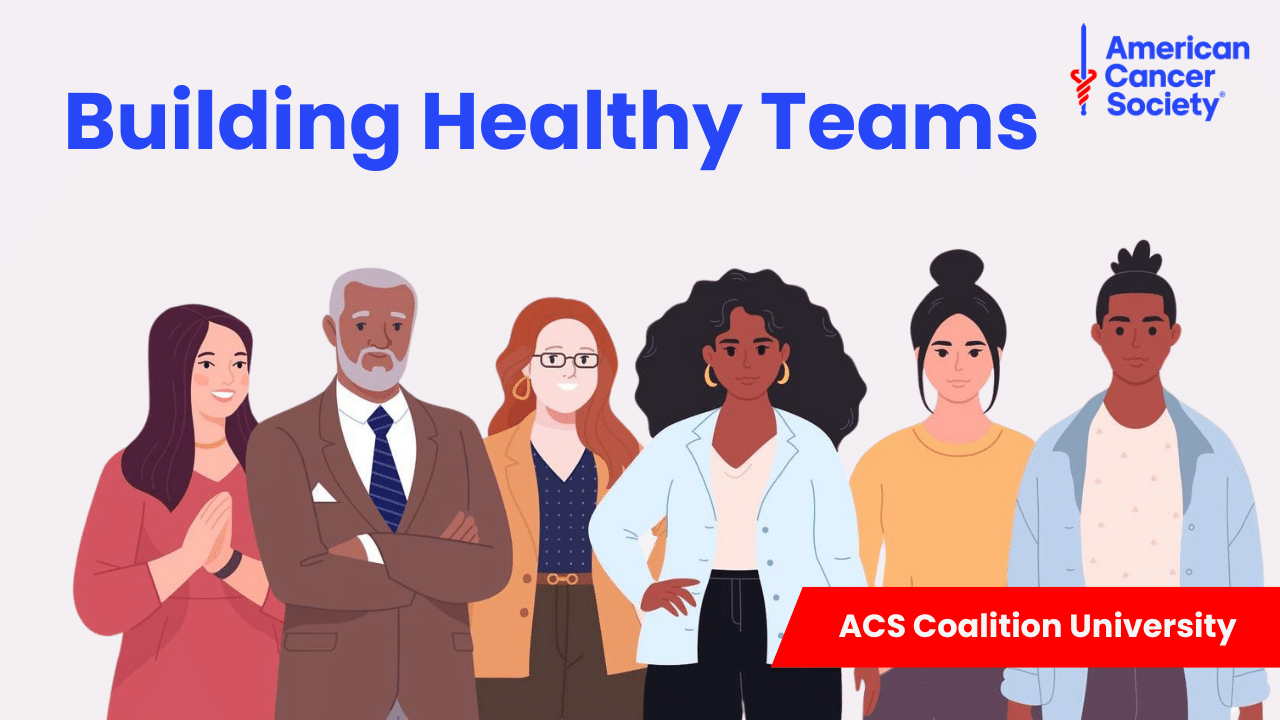This page provides links to interactive micro-learning modules organized by four ACS Coalition University topics: coalition meeting challenges, managing disagreements and conflicts, influencing people and building healthy teams.
Coalition University Module 1 : Creating an Effective Meeting Agenda
This micro-learning was created for cancer coalitions to help them plan impactful and effective agendas. This training module provides guidance on how to set clear expectations for what needs to occur before and during a meeting. Time spent planning an agenda will save time for all meeting participants by providing a clear set of topics, objectives, and time frames.
Coalition University Module 2: Meeting Challenges
Coalition work requires collaborating with others, and collaborating with others often requires…meetings! Meetings can become challenging when attendees take the meeting “off course” through side conversations, not contributing, or dominating the group dialogue. This module will help you identify the potential causes of common meeting challenges and show you strategies to overcome them -- to help your meetings stay on the course your agenda intended.
Coalition University Module 3: Managing Disagreement & Conflict
This micro-learning session addresses the importance of managing disagreement and conflict in your cancer coalition. When you convene a group of people regularly, it’s almost inevitable that you will encounter diverse needs, values, and ideas. These differences can lead to disagreements that easily turn into conflicts. If you effectively resolve these conflicts, it increases trust, teamwork, and productivity within your team. Click below to learn tools and concepts that you can use to manage one-on-one conflicts in your coalition.
Coalition University Module 4: Influencing People
When leading a cancer control coalition, one of the most important skills you will use is the ability to influence others. You might be trying to encourage someone to join and become an active member of the coalition, or maybe you’d like to get coalition members to offer resources from their organizations to implement a cancer plan strategy. In this session, you will learn about the skill of influencing people, including sources of influence, influence strategy, and promising practices.
Coalition University Module 5: Building Healthy Teams
Every coalition, team, or workgroup could benefit from ongoing guidance in building and maintaining a healthy team. Healthy teams function more effectively and produce results. At least 10% of the time you spend together as a group should be spent working on team development, and even more than that if you are launching or re-setting a team.
In this micro-learning session, you will learn the fundamentals of building healthy teams, regardless of whether your team is new or established. At the end of the course, you can download material to help keep the information top of mind, with helpful exercises to keep your skills fresh.

